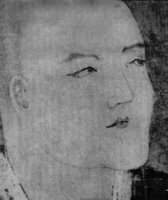#6: Osho

Short while after becoming acquainted with Zen, I picked up a book about Zen written by Osho. Immediately I recognized that this guy was awakened and started to read more books of his. Osho (born as Rajneesh Chandra Mohan Jain) was a born storyteller, a modern bard. He had a gift of speaking, putting spirituality into an entertaining form. I have never heard or read any boring things from him. In his youth Osho won many national debating competitions, he had very rational mind and later on used it to teach philosophy in university. Then he started giving speeches, taught meditation and little by little got crowd’s attention. The way he got that attention was very clever, he spoke about different religions, got audience from followers of those religions and all of them were delighted to listened to him even though his message was actually against all religions. But since he understood what religions were all about, he managed to get connection to people who in other circumstances would have been offended by the things he said.
Usually Osho is referred as a guru who people either hate or love. People’s first impression about him is usully negative. He had many rolls-royces, he talked about everything and crossed all borders when talking as nothing was taboo to him and already the way he looked caused suspicions. But those who did not turn away from first impression but went deeper, could not help loving him. He always had that playful glimmer in his eyes, always looking for opportunity to bring out a joke. He even once said that all those other things, which he talked about, were there only so he could illustrate a joke, not the other way around. Sometimes he went bit too far with his ideas but that happened rarely when comparing how much he talked about different things.
What were his key messages? Osho wanted us to enjoy life. To be able to just be, to do nothing and just enjoy this moment. To be able to laugh at everything. To be free of all systems, beliefs and traditions. To be able to be alone (with people and without people). To discover meditation, state of no-mind. To dance and dance until there was nobody dancing...
There are tons of great quotes from Osho, here are some of them:
Remain in wonder if you want the mysteries to open up for you. Mysteries never open up for those who go on questioning. Questioners sooner or later end up in a library. Questioners sooner or later end up with scriptures, because scriptures are full of answers. And answers are dangerous, they kill your wonder.
All the Buddhas of all the ages have been telling you a very simple fact: Be -- don't try to become. Within these two words, be and becoming, your whole life is contained. Being is enlightenment, becoming is ignorance.
What is needed is not something in which you can forget your loneliness; what is needed is that you become aware of your aloneness - which is a reality. And it is so beautiful to experience it, to feel it, because it is your freedom from the crowd, from the other. It is your freedom from the fear of being lonely.
Mind is repetitive, mind always moves in circles. Mind is a mechanism: you feed it with knowledge, it repeats the same knowledge, it goes on chewing the same knowledge again and again. No-mind is clarity, purity, innocence. No-mind is the real way to live, the real way to know, the real way to be.
If the whole existence is one, and if the existence goes on taking care of trees, of animals, of mountains, of oceans -from the smallest blade of grass to the biggest star -- then it will take care of you too. Why be possessive? The possessiveness shows simply one thing - that you cannot trust existence. You have to arrange separate security for yourself, safety for yourself; you cannot trust existence. Non-possessiveness is basically trust in existence. There is no need to possess, because the whole is already ours.
Existence is not a problem to be solved, it is a mystery to be lived. And you should be perfectly aware what the difference is between a mystery and a problem. A problem is something created by the mind; a mystery is something which is there, not created by the mind. A problem has an ugliness in it, like disease. A mystery is beautiful. With a problem, immediately a fight arises. You have to solve it; something is wrong, you have to put it right; something is missing, you have to supply the missing link. With a mystery there is no question like that. The moon arises in the night.... It is not a problem, it is a mystery. You have to live with it. You have to dance with it. You have to sing with it, or you can be just silent with it. Something mysterious surrounds you.



